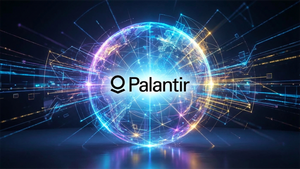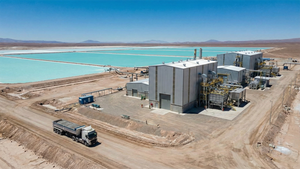Financial News
AI Fuels Tech Sector’s Resurgent Roar: A Post-Rout Consolidation and Innovation Surge

November 5, 2025 – After weathering a challenging market rout from late 2022 through parts of 2024, the technology sector is experiencing a powerful rebound and significant consolidation. This resurgence is unequivocally driven by the transformative capabilities of Artificial Intelligence (AI), which has transitioned from an emerging technology to the foundational layer for innovation and growth across the industry. With an improving macroeconomic environment and a renewed focus on strategic investments, tech giants and agile startups alike are aggressively pouring capital into AI research, development, and infrastructure, fundamentally reshaping the competitive landscape and setting the stage for an "AI-first era."
The current market sentiment is one of cautious optimism, with many tech stocks poised to reach new highs. Global IT spending is projected to increase by approximately 9.8% in 2025, with software and data center segments leading the charge. This robust growth is not merely a recovery but a strategic realignment, where AI is the primary catalyst, driving unprecedented investment, accelerating innovation cycles, and prompting a wave of mergers and acquisitions aimed at capturing a dominant share of the burgeoning AI market.
The AI Engine: Technical Innovations Propelling the Rebound
The tech sector's rebound is underpinned by a series of profound AI advancements, each pushing the boundaries of what intelligent systems can achieve. These innovations are not incremental but represent fundamental shifts in AI capabilities and application.
At the forefront are Generative AI and Large Language Models (LLMs). Models like Google's Gemini 2.5 Pro (NASDAQ: GOOGL), OpenAI's ChatGPT-4o, and Anthropic's Claude 3.7 Sonnet are demonstrating unprecedented contextual understanding and multimodal capabilities. Gemini 2.5 Pro, for instance, boasts a context window exceeding 2,000,000 tokens, enabling it to process vast amounts of information, including video. These models natively integrate image generation and exhibit enhanced reasoning through "scratchpad" modes, allowing them to "think through" complex problems—a significant leap from earlier text-based or rule-based systems. The AI research community views this as a "magic cycle" where breakthroughs rapidly translate into real-world applications, amplifying human ingenuity across diverse sectors.
Accompanying LLMs is the rapid emergence of AI Agents. These sophisticated software solutions are designed for autonomous execution of complex, multi-step tasks with minimal human intervention. Unlike previous automation scripts, modern AI agents can evaluate their own results, adjust actions via feedback loops, and interact with external tools through APIs. OpenAI's "Operator," for example, can navigate websites and perform online tasks like shopping or booking services. Deloitte predicts that 25% of enterprises using Generative AI will deploy AI agents in 2025, recognizing their potential to transform workflows, customize software platforms, and even generate initial drafts of code or design prototypes, thereby augmenting the knowledge workforce.
Furthermore, Multimodal AI systems are becoming standard, integrating and processing diverse data inputs like text, images, audio, and video. Vision Language Models (VLMs) and Multimodal Large Language Models (MLLMs) enable complex cross-modal understanding, allowing for tasks such as diagnosing diseases by simultaneously analyzing medical images and clinical notes. This holistic approach provides a richer context than single-modality AI, leading to more human-like interactions and comprehensive solutions. The unprecedented demand for these AI workloads has, in turn, fueled an AI hardware boom, with specialized chips (GPUs, TPUs, AI accelerators) from companies like NVIDIA (NASDAQ: NVDA), AMD (NASDAQ: AMD), and Google driving the infrastructure buildout. These chips are optimized for parallel processing, offering significantly higher performance and energy efficiency for AI training and inference compared to traditional CPUs. The AI chip market alone is projected to surpass $150 billion in 2025.
Initial reactions from the AI research community and industry experts are overwhelmingly optimistic, albeit with a strong emphasis on responsibility and addressing emerging challenges. There's a widespread recognition of AI's unprecedented pace of innovation and investment, with industry leaders actively reorienting business models toward an "AI-first" future. However, a growing focus on ROI and value creation has emerged, as companies move beyond experimentation to ensure AI projects deliver tangible top-line and bottom-line results. Ethical AI development, robust governance frameworks (like the EU AI Act taking full effect), and addressing workforce impact, data quality, and energy consumption are paramount concerns being actively addressed.
Shifting Tides: Impact on AI Companies, Tech Giants, and Startups
The AI-driven tech rebound is profoundly reshaping the competitive landscape, creating clear winners and challenging existing market positions. Global venture capital funding for AI alone exceeded 50% in 2025, underscoring the intense focus on foundation models, infrastructure, and applied AI solutions.
Tech giants are at the forefront of this transformation. Microsoft (NASDAQ: MSFT) has deeply integrated its AI strategy across its product ecosystem, with Copilot becoming the new interface for work within Microsoft 365 applications. The company is investing billions in AI and cloud infrastructure, anticipating its AI business to scale to $10 billion in annual revenues in less than two years. Google (Alphabet, NASDAQ: GOOGL) is leveraging its Gemini AI model to revolutionize semiconductor manufacturing, hospitality technology, and IT analytics, rapidly integrating AI into its search algorithms, ad targeting, and cloud services. Amazon (NASDAQ: AMZN), through its AWS division, is investing around $100 billion in AI infrastructure in 2025, building a full-stack AI approach with custom chips and generative AI applications. Even Meta (NASDAQ: META), despite recent stock drops due to increased capital expenditure forecasts, is making massive investments in "personal superintelligence" to accelerate its core business.
The competitive implications for major AI labs are intensifying. OpenAI, a key player in generative AI, holds a significant market share and is continuously innovating with models like GPT-4o and the text-to-video model Sora. Its recent seven-year, $38 billion partnership with Amazon Web Services (AWS) highlights a strategy to diversify cloud dependencies beyond Microsoft Azure. Other notable AI labs like Anthropic, Cohere, Character.ai, Stability AI, xAI, Mistral, and Reflection AI are also attracting significant investment. The "talent wars" are fierce, with "acqui-hires"—where strategic buyers acquire startups primarily for their talent—becoming a common M&A strategy.
Generative AI is poised to disrupt and transform various industries. In software development, AI is revolutionizing how code is written, tested, and debugged, with tools like GitHub Copilot helping developers write code 55% quicker. This necessitates developers to integrate AI into their workflows and acquire new skills. Customer experience is shifting towards conversational, AI-driven interactions, with companies like Amazon rebuilding customer service chatbots with generative AI. In marketing and advertising, AI is embedded in content creation, paid search, and real-time personalization. Furthermore, AI agents are expected to reshape demand for enterprise software, potentially leading companies to invest less in premium upgrades and instead opt for tailored AI solutions that customize existing systems like ERPs, fundamentally transforming the workforce by creating "digital colleagues."
Strategic advantages are increasingly tied to access to vast computing resources, proprietary data, and a "full-stack" AI approach. Hyperscalers like AWS, Azure, and Google Cloud are central to the AI ecosystem, providing essential infrastructure. Companies that can leverage their institutional knowledge and proprietary data with AI-powered cloud architectures will emerge as differentiators. Moreover, a robust commitment to ethical AI and governance is no longer optional but a critical differentiator, ensuring transparent, compliant, and responsible deployment of AI systems. The market is shifting from mere experimentation to optimizing AI performance and maximizing its value, signaling a maturing market where "Frontier Firms" structured around on-demand intelligence and hybrid human-AI teams are expected to thrive.
A New Epoch: Wider Significance in the AI Landscape
The AI-driven tech rebound is not merely a cyclical market correction; it represents a profound paradigm shift, fitting into the broader AI landscape as a "supercycle" of transformation. This period marks a pivotal moment, distinguishing itself from previous "AI winters" by the pervasive and practical application of intelligent systems across every facet of industry and society.
The AI landscape in late 2025 is characterized by explosive market growth, with the global generative AI market projected to reach USD 37.89 billion in 2025 and exceed USD 1 trillion by 2034. A significant trend is the shift towards agentic AI systems, which can plan, execute, and coordinate multiple steps autonomously, moving into production for high-value use cases like cybersecurity and project management. The integration of multimodal AI is also becoming prevalent, enabling more natural human-AI interactions and powering perceptive and reasoning machines. Crucially, breakthroughs in model distillation and hardware innovations have driven AI inference costs down significantly (over 250x since 2022), democratizing access to advanced AI for a broader range of companies and researchers. This allows organizations to move beyond basic productivity gains to focus on complex, industry-specific AI solutions, solidifying AI's role as a foundational amplifier that accelerates progress across other technology trends like cloud computing, edge computing, and robotics.
The impacts of this AI-driven rebound are far-reaching. Economic growth and investment are soaring, with global AI funding reaching an astounding $73.1 billion in Q1 2025, accounting for over 57% of global venture capital funding for AI and machine learning startups. AI-related capital expenditures reportedly surpassed U.S. consumer spending as the primary driver of economic growth in the first half of 2025. This massive investment is transforming business analytics, customer service, healthcare, and content creation. The workforce is also undergoing a significant shift, with wages rising twice as fast in AI-exposed industries, though skills required for these jobs are changing 66% faster than other sectors, necessitating continuous adaptation. Some experts view the generative AI revolution as the third significant shift in software architecture, following the PC and internet revolutions, potentially leading to the replacement of well-established SaaS applications with AI-native solutions.
Despite the immense positive momentum, several significant concerns are intensifying. "AI bubble" fears are escalating, with a November 2025 BofA Global Research survey indicating that 54% of institutional investors believe AI stocks are in a bubble. The rapid rise in valuations, particularly for high-flying AI companies like NVIDIA (NASDAQ: NVDA) and Palantir (NYSE: PLTR) (with a price-to-earnings ratio of 700x), has drawn comparisons to the dot-com bust of 2000-2002. There are also concerns about market concentration, with a small group of influential companies securing most major deals, raising fears of "contagion" if AI's bold promises do not materialize. Ethical and societal risks, including algorithmic bias, data privacy, accountability, and the challenge of "AI hallucinations," are moving to the forefront as AI becomes more deeply embedded. Furthermore, the massive demand for computational power is straining infrastructure and resource limitations, leading to challenges in energy availability, access to specialized chips, and constrained data center power.
Comparing this to previous AI milestones, the current boom is seen by some as a decade-long "Supercycle" that will fundamentally transform industries, suggesting a more profound and sustained impact than the dot-com bubble. AI has transitioned from a novel concept to a practical tool with real-world impact, moving beyond pilot phases to full-scale operations. The increasing focus on agentic AI also signifies a qualitative leap in capabilities, moving towards systems that can take autonomous action, marking a significant advancement in AI history.
The Horizon: Future Developments and Challenges Ahead
The future of AI, following this period of intense rebound and consolidation, promises continued rapid evolution, marked by increasingly autonomous systems and pervasive integration across all sectors. Experts, as of November 2025, predict a pivotal shift from experimentation to execution within enterprises.
In the near-term (2025-2026), the rise of AI agents will be a dominant trend. These agents, capable of autonomously completing complex, multi-step tasks like scheduling or software development, are already being scaled within enterprises. Multimodal AI will move from experimental to mainstream, enabling more natural human-AI interaction and real-time assistance through devices like smart glasses. Accelerated enterprise AI adoption will focus on targeted solutions for high-value business problems, with AI becoming a crucial tool in software development, capable of accelerating processes by at least 25%. A sharper focus on data quality, security, and observability will also be paramount, as AI vulnerabilities are increasingly recognized as data problems.
Looking long-term (next 5-10 years), AI agents are envisioned to evolve into sophisticated virtual co-workers, revolutionizing the workplace by freeing up human time and boosting creativity. AI systems will continue to become smarter, faster, and cheaper, reasoning more deeply and interacting via voice and video, though Artificial General Intelligence (AGI) remains a distant goal. AI is expected to transform nearly all industries, contributing significantly to the global economy and playing a crucial role in sustainability efforts by optimizing urban planning and making environmental predictions. Potential applications and use cases are vast, spanning healthcare (accelerated diagnostics, personalized treatment), financial services (enhanced fraud detection, predictive trading), manufacturing & logistics (AI-powered robotics, predictive maintenance), customer service (complex AI chatbots), content creation and marketing (scaled content production, personalized campaigns), enterprise operations (automation, enhanced decision-making), smart homes, education, and security (AI-based threat detection).
However, significant challenges must be addressed for responsible AI development and deployment. Algorithmic bias and discrimination remain a concern, as AI systems can perpetuate societal biases from historical data. Data privacy and security are paramount, with growing pressures to implement robust safety foundations against data poisoning and adversarial attacks. The "black box" nature of many AI systems raises issues of accountability and transparency, eroding trust. Job displacement and economic inequality are ongoing concerns as AI automates routine tasks, necessitating proactive upskilling and new role creation. Governments globally are grappling with regulatory complexity and the "pacing problem," where rapid AI advancement outstrips the ability of legal frameworks to evolve. Finally, the massive computational demands of AI contribute to energy consumption and sustainability challenges, alongside a persistent shortage of skilled AI professionals.
Experts predict that 2025 will be the "year of AI Teammates" and enterprise AI, with a significant move toward agentic systems and multimodal AI becoming essential. The importance of data quality and AI literacy is highlighted as critical for successful and ethical AI adoption. Predictions also include evolving AI business models, potentially shifting from massive GPU clusters to more targeted, efficient solutions, and consolidation among generative AI providers. Global investments in AI ethics and responsible AI initiatives are projected to exceed $10 billion in 2025, transforming ethics into essential business practices.
Comprehensive Wrap-Up: A Transformative Era in AI History
The tech sector's robust rebound and consolidation, as of November 2025, is a defining moment driven by an unprecedented surge in Artificial Intelligence. This period marks a true "AI boom," fundamentally reshaping industries, economies, and societies at an accelerating pace.
Key takeaways underscore AI's central role: it is the primary catalyst for a global IT spending surge, leading to an "AI capex surge" of over $1 billion invested daily in infrastructure. Market leadership is highly concentrated, with giants like NVIDIA (NASDAQ: NVDA), Microsoft (NASDAQ: MSFT), Meta (NASDAQ: META), and Google (Alphabet, NASDAQ: GOOGL) deploying hundreds of billions into AI infrastructure. This has fueled unprecedented M&A activity, with companies acquiring AI capabilities and talent to control the AI computing stack. However, concerns about an "AI bubble" are escalating, with financial analysts highlighting stretched valuations for some AI-related companies, drawing parallels to past market exuberance. Despite these concerns, AI is moving beyond experimentation to tangible adoption, becoming the foundational layer for innovation, productivity, and decision-making.
This development is profoundly significant in AI history, distinguishing itself from previous "AI winters" by its pervasive integration and real-world impact. It is seen as "Year 3 of what will be an 8-10 year buildout" of AI, suggesting a sustained period of transformative growth. The economic impact is projected to be immense, with AI contributing significantly to global GDP. The long-term impact will see AI accelerating and democratizing innovation, transforming the workforce through job displacement and creation, reinventing business models with AI-powered "as a Service" offerings, and driving a new economic paradigm. However, it also presents critical challenges related to energy consumption, sustainability, and the ethical integration of AI into daily life.
In the coming weeks and months, watch for a continued acceleration in capital expenditures for AI infrastructure, with a growing scrutiny from investors on companies' abilities to monetize AI and demonstrate concrete economic value. The maturation of generative AI and the widespread impact of "agentic AI systems"—autonomous, action-taking assistants—will be a key trend. Expect ongoing developments in global AI regulations, with clearer rules around data usage, bias mitigation, and accountability. Cybersecurity and data governance will remain paramount, with increased investments in AI-based threat detection and robust governance frameworks. Finally, the intense scrutiny on AI company valuations will likely continue, with market volatility possible as companies' growth and profitability projections are tested. NVIDIA's upcoming earnings report on November 19, 2025, will be a crucial indicator for investors.
This content is intended for informational purposes only and represents analysis of current AI developments.
TokenRing AI delivers enterprise-grade solutions for multi-agent AI workflow orchestration, AI-powered development tools, and seamless remote collaboration platforms.
For more information, visit https://www.tokenring.ai/.
More News
View More




Recent Quotes
View MoreQuotes delayed at least 20 minutes.
By accessing this page, you agree to the Privacy Policy and Terms Of Service.



